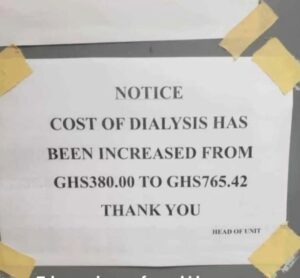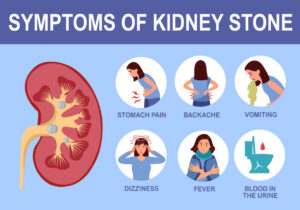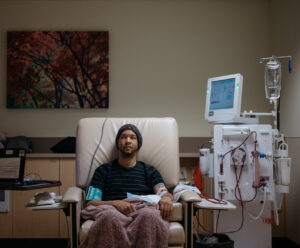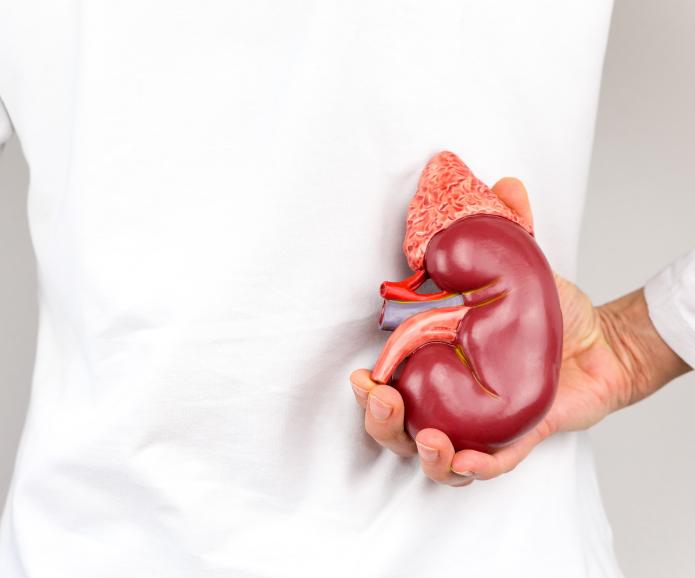In light of the trending price adjustment for dialysis at the nations premier hospital, Korle Bu Teaching Hospital, the moment is ripe to discuss your kidneys.

The kidneys are two bean shaped organs located just below your diaphragm, on either side of your spine. The kidneys remove waste and excess water to form urine. The also play a role in the production of red blood cells through the production of erythropoietin.
Other functions of the kidney include acid-base balance, vitamin D metabolism and blood pressure regulation.
So all in all the kidneys are very essential to life as you know it.

Here are 5 facts you need to know about your kidneys.
1. You have 2, but you really only need 1 to live.
This is why, one person can donate a kidney to another and both of them can enjoy a full life. God gave you a spare kidney because he knows how important the kidneys are.
2. Your kidneys are responsible for removing toxins from your bloodstream.
Toxins come in many forms and from many sources, either from the food we eat, water we drink or even in the air we breathe in. But one chief source of toxins is from medication, as by-products of metabolism. It is therefore impossible to survive without your kidneys.
3. Your kidneys may be small, but the work they do is certainly isn’t.
 Just look at the size of the dialysis machine and you will understand how important your kidneys are. Dialysis is a process where toxins, excess fluids and other functions of the kidneys are carried out artificially in the event of a kidney failure. You will require at least 3 sessions of dialysis a week, with each session lasting at least 3 hours to be able to continue living a relatively normal life until your kidneys self repair or a new kidney is found for you.
Just look at the size of the dialysis machine and you will understand how important your kidneys are. Dialysis is a process where toxins, excess fluids and other functions of the kidneys are carried out artificially in the event of a kidney failure. You will require at least 3 sessions of dialysis a week, with each session lasting at least 3 hours to be able to continue living a relatively normal life until your kidneys self repair or a new kidney is found for you.
4. Kidney can suffer infection, trauma or other forms of insult
But by far the biggest course of kidney failure in adults remains lifestyle diseases such as hypertension and diabetes and consumption of various drugs, prescribed or recreational and most importantly untested herbal preparations. Be careful what you consume as medicine, your kidney could be lost to it.
5. Kidney failure can also occur in children
but from entirely different causes. The common causes here are birth defects, malaria, infections and dehydration. Early intervention can certainly help prevent long term kidney damage.
Regular routine kidney testing is necessary to assess the health of your kidneys.







